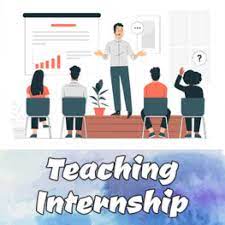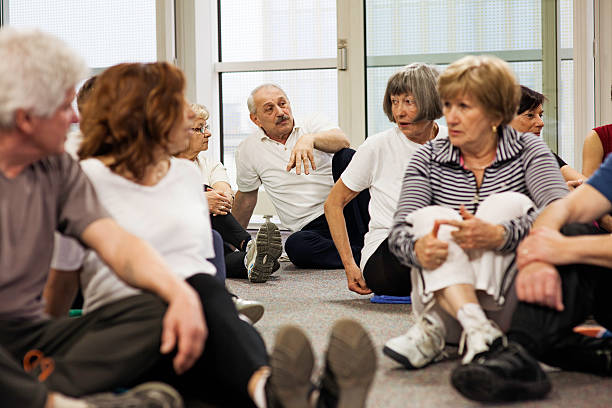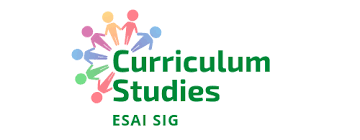
LANGUAGUE SKILLS IN KISWAHILI
MAELEZO YA KOZI
Kozi hii inagawanyika katika sura tisa zitakazomwezesha mwanafunzi kuelewa vyema na kumudu stadi zote za lugha ambazo ni :
§ Kuzungumza, kusikiliza, kusoma kuandika.
§ Kueleza asili ya Kiswahili
§ Kueleza aina za lugha na sifa zake.

Didactics of Mathematics
1. Brief description of aims and content
The module aims at:
- developing a deep understanding of philosophical foundations of mathematics
- equipping students with knowledge and scientific skills to enable them to teach competently and confidently relevant topics in mathematics in secondary schools.
This module aims to develop a deep understanding of the philosophical foundations of the teaching of computer science, develop careful reasoning and mathematical common sense in analyzing conceptual relationships. Along with building computer science knowledge, the module aims at helping students to develop habits of mind of a computer science thinker and demonstrate flexible, interactive teaching styles.
The component of measure and evaluation explains the purpose and functions of measurement as an educationally common type of instrument to determine changes or gains resulting from instructional context and evaluation as, a process wherein the parts, processes, or outcomes of a programme are examined to see whether they are satisfactory, particularly with reference to the stated objectives of the programme. This process is essential in all fields of teaching and learning activity where judgment needs to be made.

TEACHING INTERNSHIP
The teaching internship is an integral component of the teacher education program and crucial to the preparation of future teachers. This capstone experience provides classroom opportunities for candidates to develop and demonstrate teacher education outcomes as outlined in the MINEDUC Teacher Professional Standards and the CUR Teacher Education curriculum. The development of a professional teacher is a lifelong process with the teaching internship being the culmination of formal study and the beginning of professional independence.
The main purpose of the teaching internship is to help the candidate to become a successful teacher. The internship will require knowledge, dedication, enthusiasm, and stamina on the teacher intern’s part. It requires encouragement, assistance, trust, and compassion from both the Teacher Mentor and University Supervisor. Open professional communication among the teacher intern, Teacher Mentor, and university supervisor will enhance the field experience. This handbook communicates the policies, procedures, and roles/responsibilities of teacher interns, Teacher Mentors, and university supervisors. The purpose of this handbook is to assist in strengthening the teaching internship experience for all stakeholders.

GENERAL TEACHING METHODS
LEARNING OUTCOMES
*Differentiating traditional teaching methods from active methods
*Understanding principles of active methods
*Showing an understanding of forms of active methods, their applications, advantages and disadvantages
*Knowing the criteria to select suitable teaching methods

SOCIAL PSYCHOLOGY
LEARNING OUTCOMES
After having covered this component, learners will be able to:
Ø Understand the meaning of Social psychology; its scope; the difference between Social psychology and other social sciences
Ø Outline the history of social psychology.
Ø Understand the terms of self-concept, self esteem, self presentation, self discrepancy
Ø Understand the concepts related to social influence such as of attitudes, conformity and group influences
Ø Understand the concepts related to social relationship such as attraction, close relationship, conflicts, altruism and aggression.

CURRICULUM STUDIES
Curriculum is a complex educational concept that leads itself to many definitions – some narrow, some broad.
Some people use the word curriculum in different context for example when referring to the list of subjects in schools, when referring to topics, content or methods, when referring to syllabus i.e. mathematics curriculum, Geography curriculum, physics curriculum.
There are almost as many definitions of the curriculum as there are writers in the subject. The idea of curriculum is hardly new, but the way we understand and theorize it has changed over the years and there remains considerable dispute for the meaning (Smith, 1996, 2000).
In this Module you will learn Curriculum theories and Curriculum Development .

PEDAGOGICAL SCIENCES
Learning outcomes:
At the end of the Module students should be able to demonstrate knowledge and understanding of:

GUIDANCE AND COUNSELLING
UNIT Contents

PARTIAL DIFFERENTIAL EQUATIONS
A partial differential equation (PDE) is a differential equation involving partial derivatives of one dependent variable with respect to two or more independent variables. The independent variables may be space variables only or one or more space variables and time. Mathematical modelling of many situations involving natural phenomena leads to PDEs.
The subject of PDEs is a very large one. We shall discuss only a few special PDEs which model a wide range of applied problems.
Prerequisites
- Mathematical analysis II
- be able to solve constant coefficient ordinary differential equations
Learning Outcomes
- verify solutions of given partial differential equations arising in engineering and science
Contents
1 Introduction2 Partial differential equations: Application and Various methods of solving a PDE

ENTREPRENEURSHIP
This module of entrepreneurship is a common module thought to all students enrolled at CUR, it aimed to empower learners with innovation and creativity skills

PEDAGOGICAL SCIENCES
By the end of this module , students should be able to:
· Outline the main principles of CBC
• Distinguish between teaching, learning, pedagogy, and andragogy
• Describe the philosophical foundation of pedagogy
• Formulate SMART educational objectives
• Use different learning and teaching methods ;
• Properly use and fill different pedagogic documents

Special Needs Education and Inclusive Education
At the end of the module, students should be able to:
Ø Recognize the background and the key concepts in Inclusive and special needs education
Ø Explain, justify and consider the measures that involve school adjustment for integration and inclusion of learners with Special Educational Needs;
Ø Effectively explain and discuss learner- centered approaches in classroom performances
Ø Adopt school practices that enable learners with Special Educational Needs to achieve their full potential within the mainstream and inclusive schools.
Ø Demonstrate abilities to recognize and analyze the educational needs of varying categories of learners with Special Educational Needs and other barriers, and tailored alternative or friendly educational approaches and resources that correspond to the needs.
Ø Discuss the applicability of the Special Needs Educational theories, in simulating the appropriate or friendly practical response to any of the educational needs etc.
Ø Demonstrate the understanding of the conventional Inclusive Education and child friendly practices, and its applicability to the Rwandan Education context.
Ø Demonstrate the accurate understanding of the appropriate environment within which learning and teaching of the varying categories of learners with Special Educational Needs in Rwanda takes place, and be able to discuss the facilitating strategies to improve it.
Ø Understand and use some of the leaner-friendly appropriate educational materials, and their application to specific categories of educational needs.

Foundations of education
This module of foundations of education is aimed to import to learners the knowledge related to history of education, sociology of education and philosophy of education as well as comparative education.
